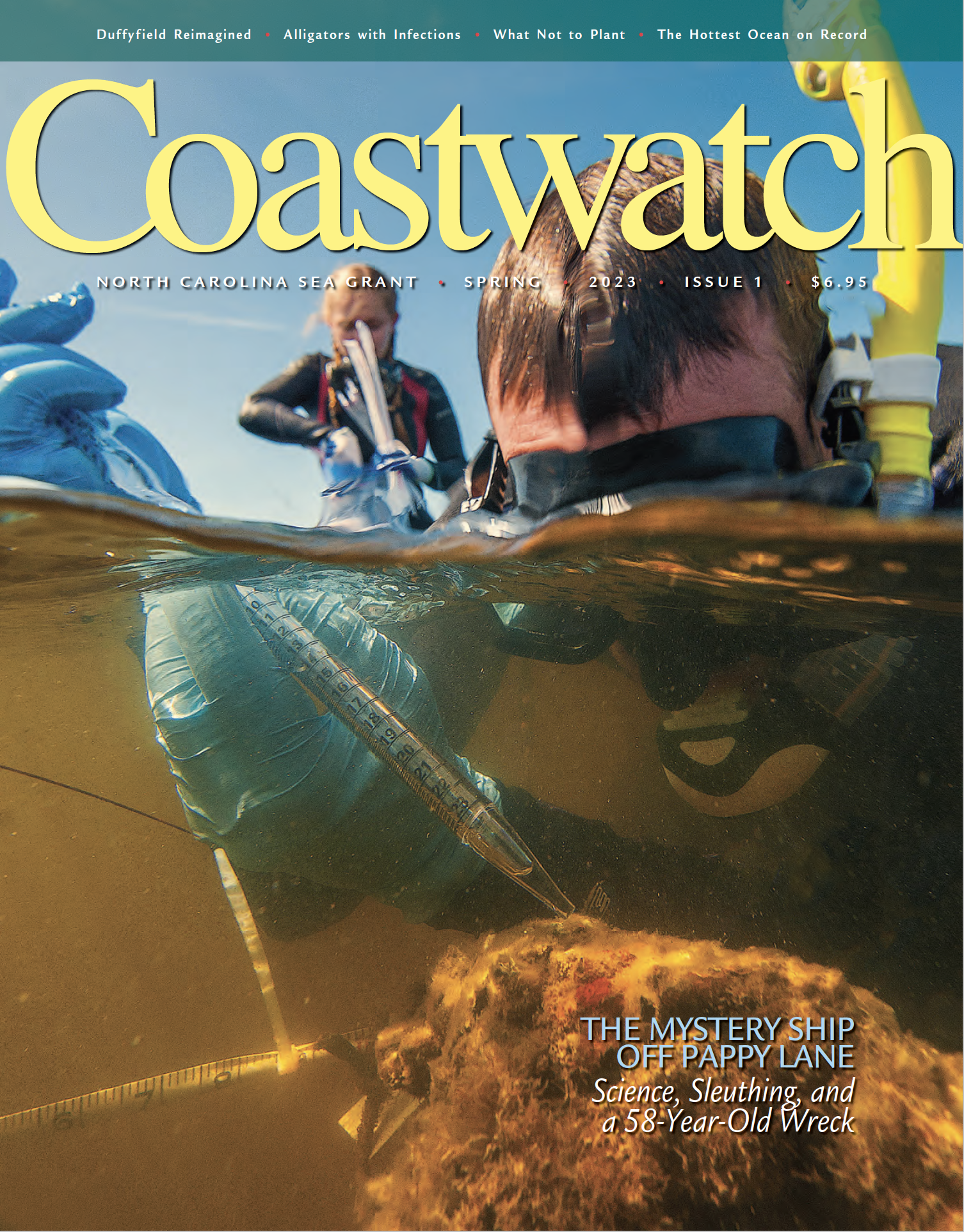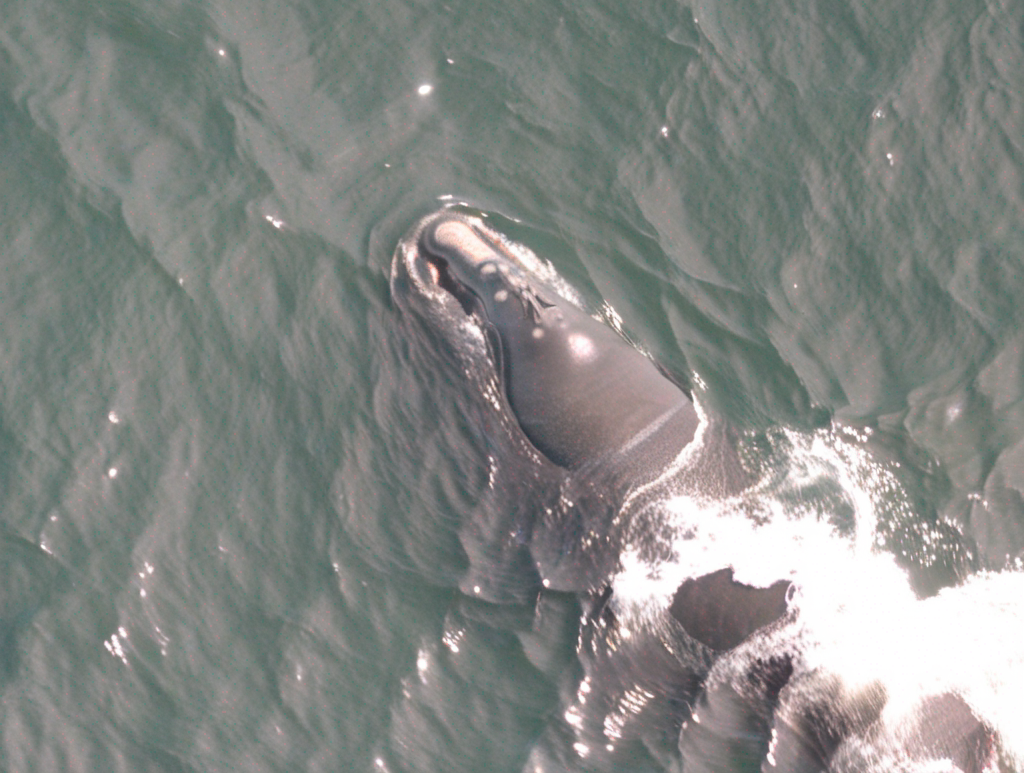Coastwatch Features a Mystery Shipwreck, Alligators Battling PFAS, and New Ricky Moore Videos
For Immediate Release
Contact: Dave Shaw, dmshaw@ncsu.edu, or Katie Mosher, kmosher@ncsu.edu
The Spring issue of North Carolina Sea Grant’s award-winning Coastwatch magazine features a mystery shipwreck, new cooking videos from Chef Ricky Moore, a look at the effects of PFAS on alligators — and much more.
In “The Mystery Ship Off Pappy Lane,” India Mackinson’s cover story looks at how science and sleuthing uncovered the history of a 58-year-old wreck. Weeks of diving and mapping revealed a ship that had found its way from the turbulence of the Pacific Ocean to its final resting place at the bottom of the Pamlico Sound.
The award-winning Lauren D. Pharr’s “Resilience And Redevelopment In Duffyfield” tells how a new project is re-visualizing the future of an underserved neighborhood with a long history of strength after adversity. A team of community leaders, researchers, and students has been working to restore housing and preserve community history.
Here’s what not to plant — and what to plant instead. The Spring issue has a sneak peek at Gloria Putnam’s eco-friendly alternatives to harmful ornamental plants.
Scott Baker and Sara Mirabilio’s Hook, Line & Science reveals where dolphinfish roam, what fish remains tell us, and where red drum go when they escape.
Baker also discusses new research that answers “How Much Ocean Floor Do Natural Reefs Occupy?” — and how much more territory belongs to natural reefs than to artificial reefs?
Mirabilio’s “Hurricanes, People, and Piping Plovers” explains a new study that looks at the long-term mating habits of piping plovers before and after protective measures went into effect.
Carrie Clower tells how a digital tool for North Carolina’s shellfish growers soon will forecast potential for last-minute lease closures in Florida and South Carolina, too.
“Why Do These Alligators Have Infections?” uncovers the autoimmune effects on alligators of exposure to PFAS.
NOAA and NASA have been tracking dramatic global changes over decades, and “The Hottest Ocean in Recorded History” charts the results.
“Wildlife Management Areas Support Local Businesses,” and not just a little bit, according to a new study that shows how hunters, anglers, and boaters help fuel the economy.
“Neanderthals Cooked and Ate Crabs 90,000 Years Ago” reveals that even cave dwellers loved seafood.
“Who Wants to Look at a Dead Whale?” Now, more people can than ever before.
This issue also provides two safety alerts. The first is a study about boating and carbon monoxide exposure.
The second is a reminder about rip currents, a free poster with information about how to escape danger. Share this poster — or print it out and put it up — and save a life.
The Spring issue also includes “Lights, Camera, Crab Cakes,” the much-anticipated cooking videos featuring Chef Ricky Moore. Step-by step, he prepares two Mariner’s Menu favorites — baked grouper with fresh herbs and crispy flounder fillets — as well as one of the chef’s own recipes, “My Crab Cakes.”
Enjoy!
###
Coastwatch online: ncCoastwatch.org
In print: go.ncsu.edu/Subscribe-Now.
New print subscriptions will begin with the Spring 2023 issue.
Permissions: Some content that appears in Coastwatch is available to republish. Email dmshaw@ncsu.edu.



